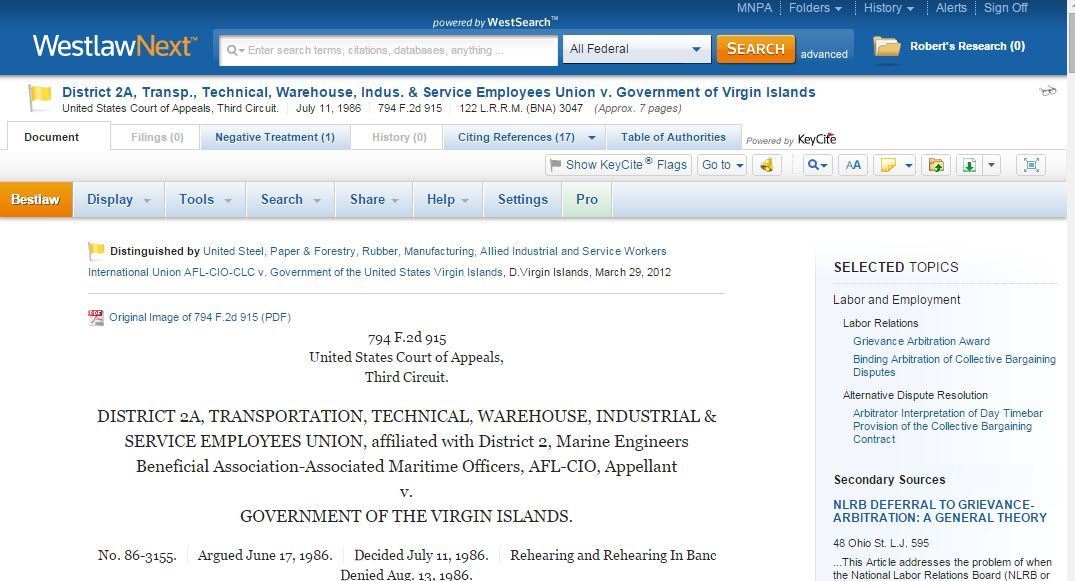
Bestlaw adds a toolbar to Westlaw and Lexis that enables handy features such as one-click copying of Bluebook citations.
Ever since it launched in October 2014, I have been meaning to write about Bestlaw. Now there is a new version out, so I have a whole new reason to write about it.
Bestlaw first came out as a free browser extension that added features features to Westlaw to make it easier to use. With this latest version, it has added support for Lexis Advance. It works with either Google Chrome or Mozilla Firefox.
Once you install the extension, then whenever you view a document (such as a case or statute) in Westlaw or Lexis, you see an extra toolbar across the top of the page. The toolbar adds handy features that both Westlaw and Lexis lack. Among them:
- Copy a perfect Bluebook citation with one click (federal cases only).
- Read documents in a clean, readable view with enhanced typography.
- Prevent getting automatically signed off.
- Collapse and expand statutory sections.
- Automatically generate a clickable table of contents for any document.
- One-click copying for citations, titles, docket numbers, and full text.
- Highlight hard-to-see page numbers.
- Jump between footnotes and the main text without losing your place.
- Search for information about the case on Google, Google Scholar, Wikipedia, Casetext, Ravel, the Legal Information Institute and Court Listener.
- Share the document by email or on Facebook, Twitter, and Google+.
This new version, which came out Aug. 9, also adds a paid “Pro” version for $5 a month. The Pro version adds:
- Access to free secondary sources, such as journal articles and other materials.
- Free PDF downloads, enabling you to save cases offline without getting charged.
- Free printing, so you never pay for printing cases.
Bestlaw was developed by Joe Mornin, a software engineer, while he was a 3L at UC Berkeley School of Law. He graduated this year.
 Robert Ambrogi Blog
Robert Ambrogi Blog